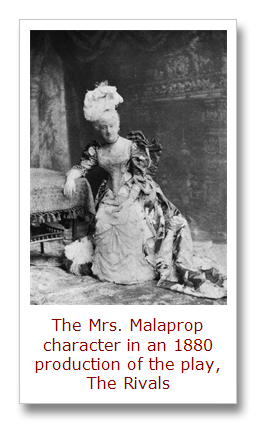Agreeance is not a new form. It has been rising in frequency in Australia since the 1980s I think, usually in the phrase to be in agreeance with someone. It is as if we are making a distinction between an agreement, a document on the table, and agreeance, a state of mind.
Read MoreI have often thought that the best option for us all is to avoid the word comprise completely because it is so misunderstood. Mostly the confusion is that a parallel is drawn with consist of with the consequence that comprise is given a particle of that it doesn’t need or want.
Read MoreI expected this phrase with the meaning ‘through the perspective or viewpoint of’ to be a well-established expression but it seems that is not the case. The Oxford English Dictionary does not have it. I could track instances in Google back to the 2000 after which it became sporadic.
Read MoreI baulked at the phrase ‘prodigious and advanced students’ because, to my mind, a prodigious student must be huge — very, very tall and possibly obese. But, as I so often say to others, I must learn that language changes all the time and be accepting of such changes.
Read MoreWhy has the frequency of this word skyrocketed in the last few decades? I will cut straight to the chase and say that it is fashion. Multiple sounds more educated than many or several. It puts the speaker in the world of experts and specialists, whereas many and several are just commonspeak.
Read MoreWhy we have developed conventional ways of conferring the pronoun she on some things and he on others is, if not a mystery, then at least an area where one should tread carefully.
Read MoreTo say that something is a cakewalk means, to us, that it is easy to do. But there are those will look reprovingly at you for using this expression and point to its history in slavery in the U.S.
Read MoreI was reading an article titled World Englishes and Lexicography. The opening paragraph explained the notion that a variety of English that was supported by a dictionary was much more likely to be generally accepted than one didn’t have this basic reference tool. This is true although unfair. Think of the vibrancy of Indian English which still doesn’t have its own dictionary. And Singaporean English.
Read MoreA correspondent raised an interesting question. If someone flies from Sydney to Norfolk Island, once they have arrived, are they now 'at' 'in' or 'on' the Island?
Read MoreI was startled to hear recently about a secretive military base on the Western Australian coast line. The Chinese were being accused of spying on it.
I enjoyed the idea of the base whispering behind its hand or scuttling around in dark corners.
Read MoreIt seems that there’s is on the way to becoming a fused unit at the beginning of a sentence allowing both singular and plural to follow.
Read MoreMany guests on radio use this expression, to the point where one subscriber has become so irritated that I have been asked to comment on it.
Read MoreAccording to the American writer Lawrence Harrison, who coined the word in an article in the Washington Post in 1976, a malaphor is a blend of malapropism and metaphor.
Read MoreThis is a phrase that was very popular in the early 1800s when charitable people gave comfort to the poor, the sick, the dying but, while the expression is still used in that context, of late it has been achieving cliché status in the mouths of politicians who are giving comfort to various interest groups.
Read MoreA correspondent noted that the word he hated was onboarding for the process of taking on a new employee. This was once called orientation which was an accurate description of the process by which a new person is given help and advice and told where the tea and coffee is in the kitchen. The newbie is helped to get their bearings.
Read MoreMy ranga friend was saying that she was forever grateful to the person who taught her to remember that you had fewer peas and less potato. Fewer peas because these were a number of countable items on your plate, but less potato (mashed) because this was just one undifferentiated blob on your plate.
Read MoreAn ABC reporter declared that, for the vote on legalising euthanasia, the Queensland government was conducting ‘a rare conscious vote’. I remember commenting before on the decline in frequency of the word conscience from a high in the early 1800s to a low in the 1980s.
Read MoreA friend asked ‘How exactly does one crab money?’ He had noticed an item in the morning paper which referred to ‘money crabbing lawyers and solicitors’. You might think it is just a typo but there more examples of money crabbing on the internet than can be explained away as typos.
Read MoreIf you are not a native speaker of a language you can make some serious mistakes as you try to guess the meanings of words, particularly if you do not have sufficient context or the advice of someone who is a native speaker.
Read MoreAugust was the month when NSW abandoned COVID-zero and aimed at ‘living with COVID’. Sometimes this was more specifically living with Delta, partly because the politicians wanted to remind us that Delta was different and required a different response from the response to previous variants of COVID.
ZG: 9
No one knows yet what this will mean in practice but it is obviously the next twist in the tale of COVID-19.
Read More


















